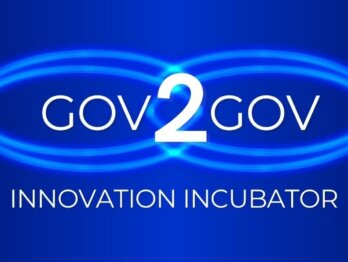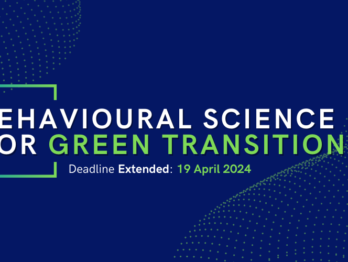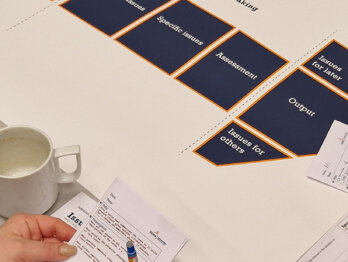Gov2Gov Challenge 1 | Brazil | Voices Unheard

This team and corresponding challenge area are participating the OECD Gov2Gov Innovation Incubator. For information on the programme, please click here.
How can we promote broader and more equitable digital participation?
🇧🇷 In early 2023, the Brazilian government initiated the Brasil Participativo initiative as its primary participation platform. This platform was deployed adopting the e-participation free software Decidim, a global digital commons. This effort marked a significant step in digital civic engagement, with successful projects like the PPA Participativo, which attracted 4 million unique visitors and nearly 1.5 million participants. Their goal is to offer digital participatory tools to all federal government policy areas and to be a reference for state and local governments in Brazil.
Challenge description
The OECD and Brazil’s SNPS/SGPR are calling on government solution providers to join the incubator programme and support them in improving the access and inclusiveness of underrepresented and marginalised groups to the debate on Brasil Participativo.
Despite its success, the Brasil Participativo project confronts the challenge of integrating historically marginalised groups and ensuring their meaningful inclusion in the co-design and governance of both Decidim and its application as a digital commons for e-participation in Brazil. Issues like limited tech access and systemic inequalities limit these communities’ meaningful involvement in co-design and governance, underscoring the need for more inclusive strategies. Historically marginalised groups can be defined based on various social intersections, such as income, gender and race. In this context, we will focus on three main aspects: low-income people, women and Black people, recognising that these categories often overlap, intensifying inequalities.
The intersection of these identities can intensify experiences of marginalisation. For example, low-income Black women face challenges that are unique to their intersectional situation, dealing with gender, racial, and economic discrimination simultaneously.
Taking this into account, the two interlinked challenges to be addressed in the incubator programme are:
How can we ensure meaningful participation beyond tokenistic engagement?
Establishing a foundation for integrating inclusive practices into the platform’s governance framework entails a set of activities where other governments’ experiences can support our challenge:
- Completing a comprehensive assessment of participation barriers. One of the challenges here is the availability of comprehensive diversity data (disaggregated data by e.g. age, gender, disability or ethnicity) that could provide insights on how to overcome exclusion of marginalised communities.
- Developing and initiating targeted inclusion strategies through pilot projects.
- Establishing robust feedback mechanisms for continuous adaptation.
How can we overcome geographical and social barriers to reach out and engage marginalised communities?
Connecting and engaging with the targeted communities of this challenge presents several constraints that impact the activities needed to ensure meaningful participation.
Strengthening partnerships with relevant stakeholders (Social movements and civil society organisations) can provide insights into the specific challenges faced by communities that are particularly affected by exclusion. Furthermore, Civil Society Organisations (CSOs) can assure that the initiative is guided by the needs of marginalised communities and moves towards a more inclusive co-design process.
Brazil’s team is interested in learning from other experiences that have tackled inclusivity challenges related to participatory processes using Decidim and/or other free participatory software in government. The team would also like to know more about the experiences of digital participation services that have achieved inclusion independently of the software.
Objectives & impact
Historically marginalised and underrepresented communities in Brazil stand to benefit directly. By effectively involving these groups, the initiative aims to make e-participation processes more accessible and reflective of their needs, thereby influencing policy development and enhancing democratic engagement.
Solving the inclusivity challenge would transform Brasil Participativo into a genuinely inclusive platform where marginalised groups significantly contribute to the co-design and governance of Decidim and its uses in Brazil. This transformation would ensure broader, equitable participation and reflection of diverse needs in policy development, enhancing both democratic engagement and the formulation of policies catering to underrepresented communities, thereby contributing towards a more inclusive democracy in Brazil.
Meet the team: Challenge owners

The Brazil Participativo project began in 2023 as a platform within the Directorate of Digital Participation and Network Communication of the National Secretariat for Social Participation at the General Secretariat of the Presidency of the Republic (SNPS/SGPR). The project has the University of Brasília (UnB), the Ministry of Management and Innovation in Public Services (MGI) and Dataprev as institutional partners, which are responsible for the developing and hosting the platform.
The core team is composed of public policy and civic tech experts, software engineers and developers, designers and communication professionals. The team dedicated to promoting digital participation in Brazil using open-source tools and is driven by the values of democracy, inclusion, diversity, social justice, integrity and transparency.
Meet the challenge coordinators:
- Carla de Paiva Bezerra
- Nilo da Silva Marques Junior
- Leonardo Gomes
- Henrique Parra
- Ricardo Poppi

Would you like to team up?
Take a look at our participation criteria, FAQs, and become a solution provider. Deadline: 7 June 2024 | extended: 20 June 2024
- Learn more about Challenge 2 | France: How can the design of data spaces boost contributions and participation of the general public in the common data space?
- Learn more about Challenge 3 | Italy: How can we establish a collaborative, cross-departmental and inclusive culture for AI project management?
- Learn more about Challenge 4 | Spain: How can we improve accessibility to public services for people in vulnerable situations and at risk of exclusion?
This project and blog are funded by the European Union. Its contents are the sole responsibility of the OECD and do not necessarily reflect the views of the European Union.













